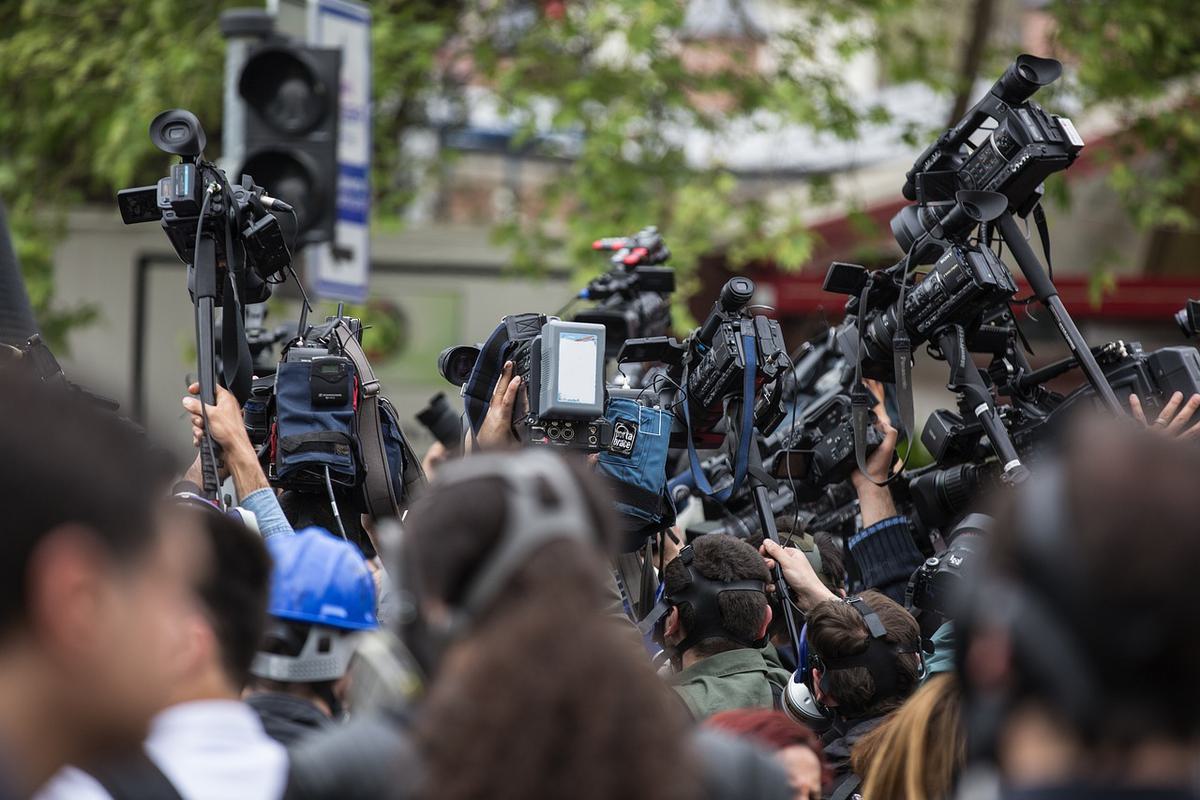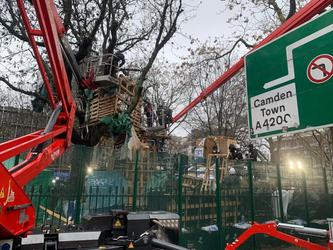How to handle journalists during a protest

At a demonstration site, apart from the protestors themselves, the other group of people whose presence you can almost guarantee are journalists.
They might be there in an obvious and official capacity, microphone and camera in hand, or they may be present undercover, hiding amongst the protesters. The best approach to take is to assume that members of the fourth estate are on site, whether visible or not.
With that in mind, we have some suggestions on how you, the client, can manage the media to control, as far as possible, what is said about the protest and the removal of the demonstrators - or travellers, depending on the circumstances.
This advice is based on first-hand experience on numerous demonstrator evictions, but just remember that we are eviction, not media specialists.
Provide briefings
Have media packs ready (where appropriate) and brief the media regularly. By providing information, you not only show that you have nothing to hide, but you also retain a degree of control of the message given out.
Depending on the site, it may be wise to arrange a cordoned off area for the media, where they are somewhat removed from the immediate activity, so you don’t have to worry about their safekeeping.
Arrange media training
Make sure that whoever in your organisation is briefing or dealing with journalists is fully media trained. Emotions may be running high, so your spokesperson will need to remain calm under pressure, but still present the human, caring face of your organisation.
Brief the team
Brief everyone on site about who to address media queries to and whether they may or may not make any comment to journalists if asked directly.
If they are permitted to make comment, train them on how to do this. They should always tell the truth and keep their answers short and to the point, only answering the question that was asked. Let them know which information is confidential and how they should answer such questions.
Choose your enforcement agents with care
Experienced, skilled and fully trained enforcement agents will know how to undertake an eviction in a correct and proper manner so that the eviction is in line with Health & Safety regulations, the Human Rights Act and the National Standards for enforcement agents.
A professional eviction team will mean that journalists will not have any ammunition to point the finger, either at the team or at your organisation.
At the National Eviction Team, we instruct our enforcement agents to only say, when asked, that they are enforcing a writ on behalf of the court and that they cannot comment further. Protecting our clients’ reputations is of the utmost importance to us.
Remember that everyone’s a journalist now
And last, but by no means least, every person on site with a smartphone is now a journalist, filming and photographing the action as it unfolds, sometimes goading those evicting them to try and get some juicy misdemeanours.
As we’ve said already, this is where it is so important to make sure the enforcement agents you appoint know what they are doing, can deal professionally with all those on site and know how to calm and defuse a situation.



